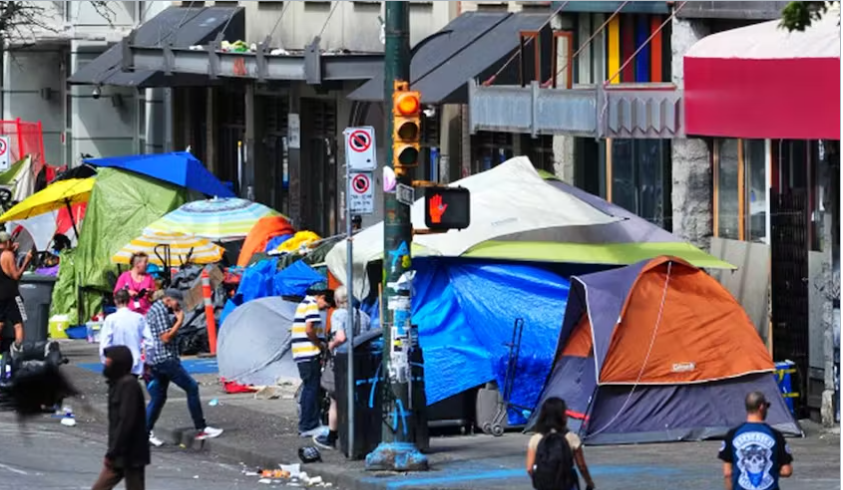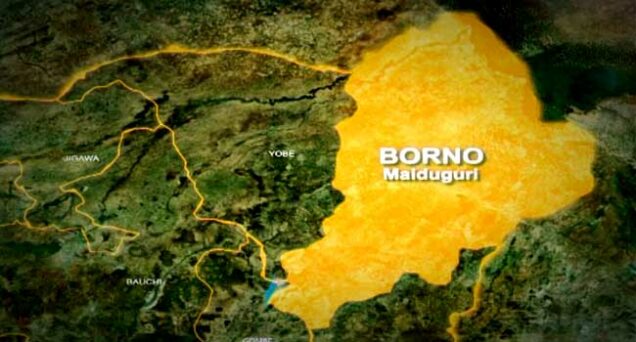
Canada is gripped by a surge in homelessness that has seen tens of thousands of people priced out of rental and real estate markets and left to live in the streets of the wealthy nation.
Researchers warn government data is vastly underestimating the number of homeless across the country as the social ill spreads from major cities to small towns.
In Quebec, one in two homeless people can be found in rural parts of the eastern province, instead of mainly in Montreal, as had been the case in the past, according to a new report published in September.
Danny Brodeur-Cote has lived for months in a makeshift camp in woodlands near a cemetery in Granby, a town of 70,000 inhabitants 80 kilometres (50 miles) east of Montreal, after being evicted in June from an apartment he rented with his girlfriend.
“I work five days a week,” the janitor with dishevelled brown hair told AFP, pushing a shopping cart to the campsite.
At age 39, this is the first time in his life that he has found himself living in the streets. “What little housing there is is much too expensive,” he said.
A few blocks away, a park has been transformed into a makeshift encampment for men and women of all ages, some of them employed, like Brodeur-Cote.
Nearly one in four homeless people found themselves on the street after being evicted from housing, according to the Quebec government report.
“In Granby alone, we need at least 1,000 affordable housing units,” says Karine Lussier, director of a local anti-poverty organisation.
Between 2018 and 2022, the number of homeless people in Quebec increased by 44 percent, their numbers swelling to 10,000 last year. Indigenous people, who represent five percent of the Canadian population, are particularly overrepresented in the streets, especially the Inuit, said Lussier.
“Visible homelessness did not exist three years ago in Granby,” mayor Julie Bourdon told AFP, admitting that “rents are very high now compared to two years ago.”
The city, rather than dismantling the camps and relocating the occupants, decided to opt for maintaining what it calls “places of tolerance.”
The situation, says France Belisle, mayor of Gatineau — a city of nearly 300,000 inhabitants across a river from the capital Ottawa — could only be the tip of the iceberg because these are “the figures compiled a year ago.”
With the rising cost of living and galloping inflation this year, she fears that the picture is much worse than recent statistics reveal.
People “are no longer able to make ends meet,” she says.
– Humanitarian crisis –
Quebec, the second-most populous province in Canada, is facing a serious housing shortage because of factors ranging from the pandemic to record immigration driving population numbers higher, fueling demand.
Real estate prices have become the main topic around the dinner table in recent months, and public opinion and opposition criticisms have forced governments to prioritise housing and cost of living concerns.
And Quebec is not alone in the quandary: homelessness is spiralling across Canada, experts warn.
Government data estimates there are some 235,000 homeless people across the country, but that is only counting people who access shelters, said University of Western Ontario professor Cheryl Forchuk, who — like Belisle — fears the true picture is far worse.
“We are largely underestimating the number… we could probably triple the current federal estimates,” she said.
“We now find ourselves in a situation where even well-off people have difficulty with housing,” Prime Minister Justin Trudeau conceded in September.
Quebec leader Francois Legault described it as the “perfect storm.”
This crisis “is not acceptable in a society that is nevertheless rich and modern,” he recently declared.
Getting off the street without help is practically impossible, opines Lussier.
“We are outraged, sad and angry because for years we have been saying: ‘Be mindful, we are almost heading towards a humanitarian crisis.'”
Still holding out hope of finding fairly priced accommodations, for now Brodeur-Cote must continue bathing in a nearby river daily before work.
“I never asked my parents for a penny, except three months ago,” he says, not knowing what the next few months will look like as winter approaches.






